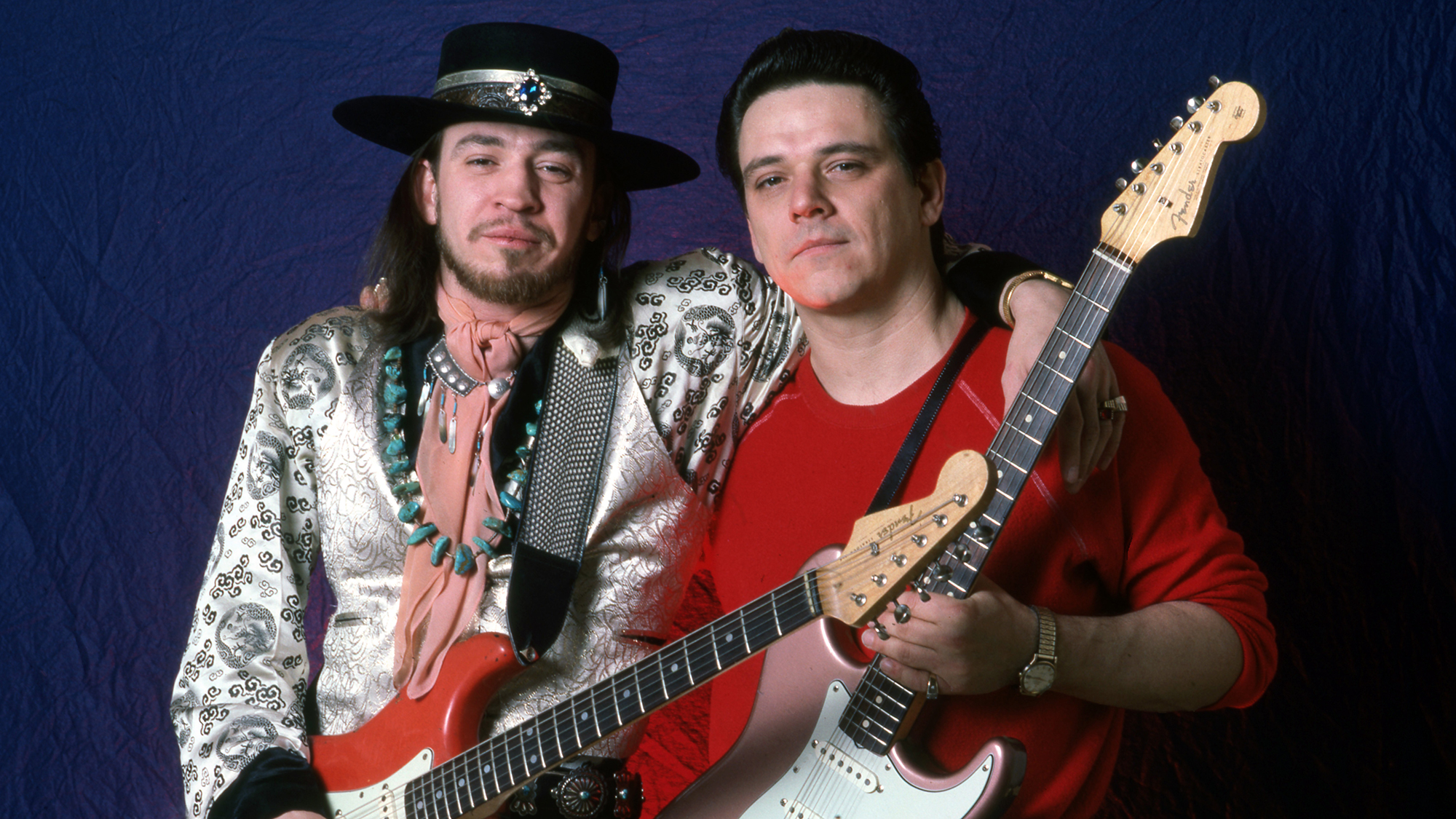4 online-only guitar companies you need to check out
Tired of the same old guitar colors, shapes and sizes? It's time to discover some fresh six-string delights
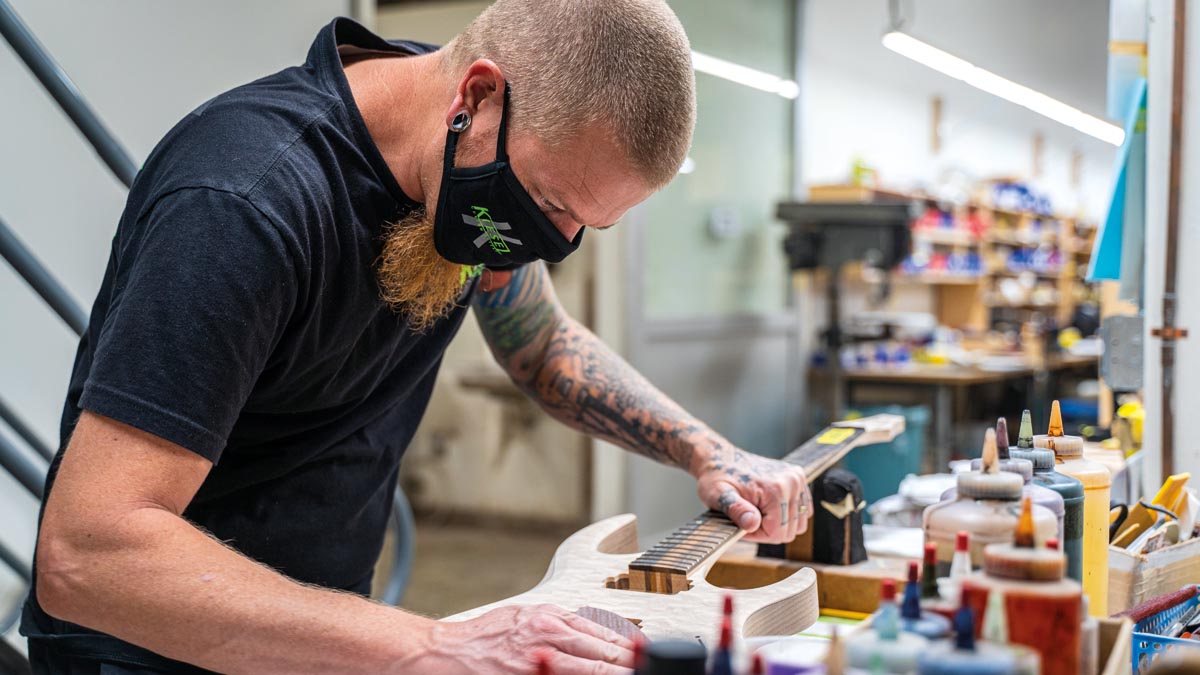
Most of us pick up the guitar to make a personal statement. It’s our way of saying, “Hey, man, I only know three chords and five recycled blues licks, but I’m special – I’ve got something to say. I am not an animal… I AM HUMAN!”
But if it’s “unique” we’re after, why do so many of us settle for guitars that look the same? You know the ones – red, black, white or sunburst… two humbuckers or three single coils… a maple neck or maybe rosewood… yawn. (Okay, okay, one or two of you may have guitars with quilted tops, but that doesn’t make you different. It only means you’re a hedge fund manager with a few bucks.)
Regardless, all too often guitar players are drawn to a variation on the same theme. We’re not pointing fingers; we’re often guilty of the same crime. But recently, thanks to Covid-19, we’ve had a little extra time to reflect on our lack of imagination and the error of our ways. It’s also given us plenty of time to dig through the internet.
And to our amazement, we’ve discovered a new and wonderful world of interesting – and surprisingly affordable – guitars. Instruments so different, they’ll certainly make your pals sit up and say “Amazeballs!” The following are some of our favorite online guitar companies, each offering their own intriguing vision. And best of all, they’ll send their six-string wares right to your home… virus-free.
Eastwood Guitars

Established in 2001, Eastwood’s modus operandi is to create instruments that not only evoke or replicate rare classic looks and vintage sounds, but to offer them at reasonable prices.
Founded by Michael Robinson, the company produces more than an astounding 250 models, and their regular customers include famous guitar super nerds like Jack White, Foo Fighters, Robyn Hitchcock, R.E.M.’s Peter Buck and John Fogerty.
“We’ve built up a large international following of like-minded people that desire something other than the Fender-Gibson sound, or perhaps never liked the Fender-Gibson sound in the first place,” laughs Robinson. “They usually become loyal customers because of two things: Even though our guitars are weird, they exceed people’s expectations, and we make the online buying experience easy.”
Get The Pick Newsletter
All the latest guitar news, interviews, lessons, reviews, deals and more, direct to your inbox!
Part of what makes Eastwood unique is that they sell all their guitars exclusively online. With so many different models, Robinson says it’d be impossible to do it any other way. “Even if Guitar Center carried 12 of our guitars, it would only scratch the surface of our inventory,” he says.
Thankfully, shopping on their well-designed website is all part of the fun. Once you get comfortable with the fact that you can narrow down the specs, watch the videos, read the reviews and then pull the trigger and get the precise model you want in the mail, it’s a bit difficult to settle for limited selection of brands and colors at a local store.
If you buy one of their instruments and it’s not love at first sight, Robinson assures they have a no-questions money-back return or swap policy. “We will do whatever we need to do to make somebody happy with their purchase, because it’s easy for us to do that,” he says. “But a surprisingly low number of people have been unhappy.”
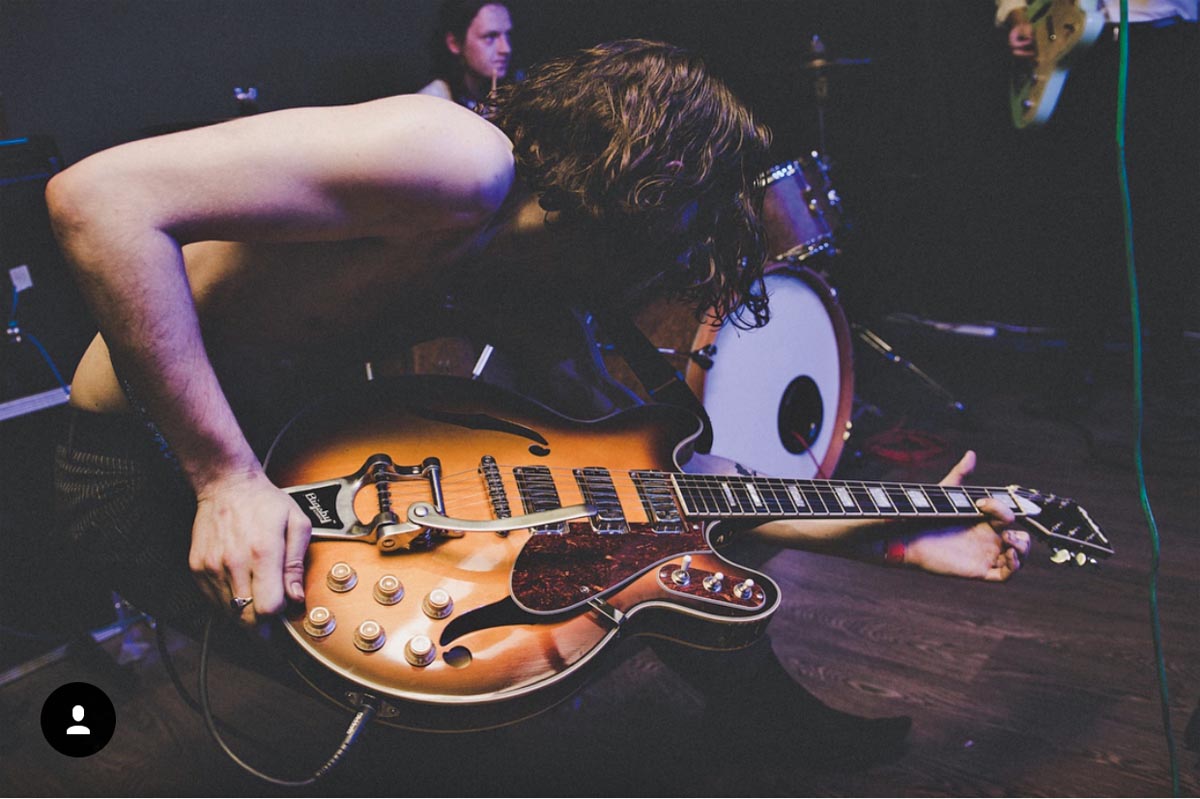
Legion Guitars
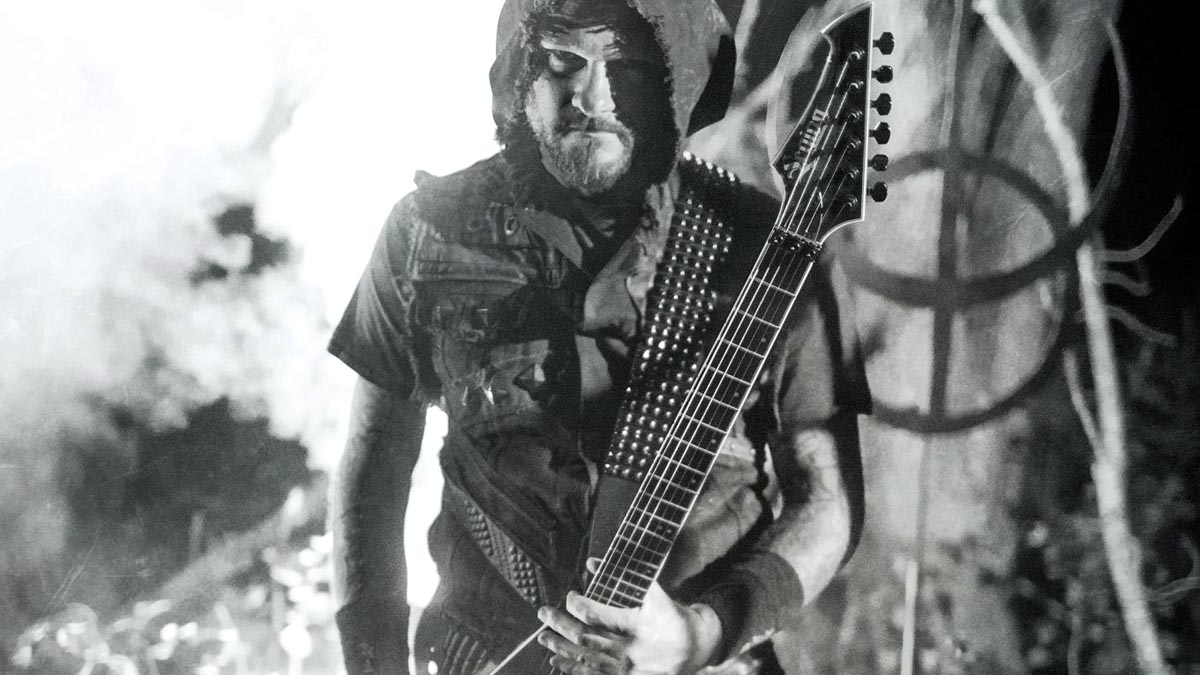
While Eastwood offers hundreds of makes and models, the mighty Legion Guitars offers… just two. But don’t laugh, both are extremely cool. Owner Chad Petit has carved out a special niche and pursued it with laser-like focus, much to the delight of his obsessed consumers.
“I noticed a gap in the marketplace for '80s-style B.C. Rich and Jackson guitars and decided to update the originals and make them better and cheaper,” says the die-hard metal enthusiast. “That’s why so many people are reaching out to online makers. They want to connect with someone that understands them and will give them exactly what they’re looking for.”
When I’m designing extreme body shapes, there are two things that are important. It has to look good and it has to be balanced
Chad Petit, Legion Guitars
True to his word, his Legion instruments are beautifully constructed, reasonably priced and his vintage heavy metal body shapes are to die for.
“When I’m designing extreme body shapes, there are two things that are important,” Petit says. “It has to look good and it has to be balanced. Once you start messing with the shape of the guitar and stretching one of the body wings, how the guitar sits on you can change very quickly.
“I grew up playing B.C. Rich guitars – I probably owned close to a thousand of them – and that was my biggest complaint. It’s rare I would ever get one that was in balance. You won’t find that with my guitars. No matter how extreme, I’m obsessed with making them sit perfectly.”
While Petit has produced limited runs of different shapes, his current winner is the Nihlist, which comes in six- and seven-string models. The Nihlist 7 NT27 features a 27-inch scale in a Walnut/Maple seven-piece neck with an ebony fretboard in the neck-thru build with alder body wings and a classy oiled finish for a very reasonable $800.
The Nihlist NTFR is a six-string guitar with a matte black polyurethane finish, 24 jumbo frets and a special binding – all for $875.
“I think the Nihlist just got a really good aesthetic to it,” Petit says. “It’s a timeless throwback to late-Eighties extreme shapes. It’s not too big, it’s not too small, it just falls right in that pocket. It’s perfectly balanced, it plays well sitting down or standing up.”
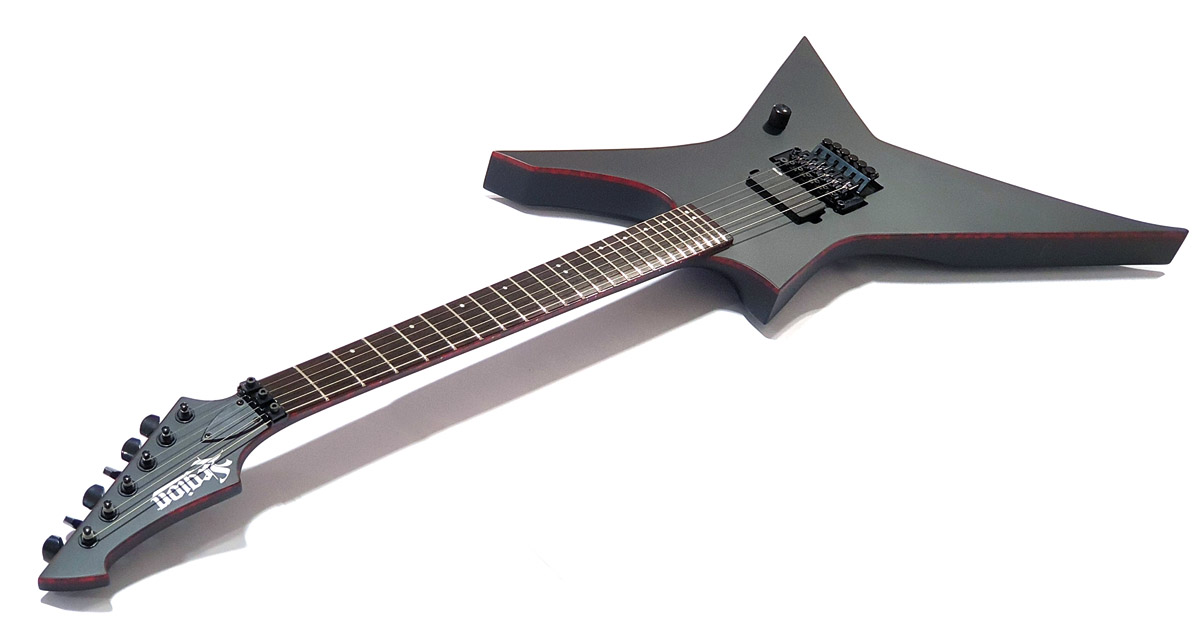
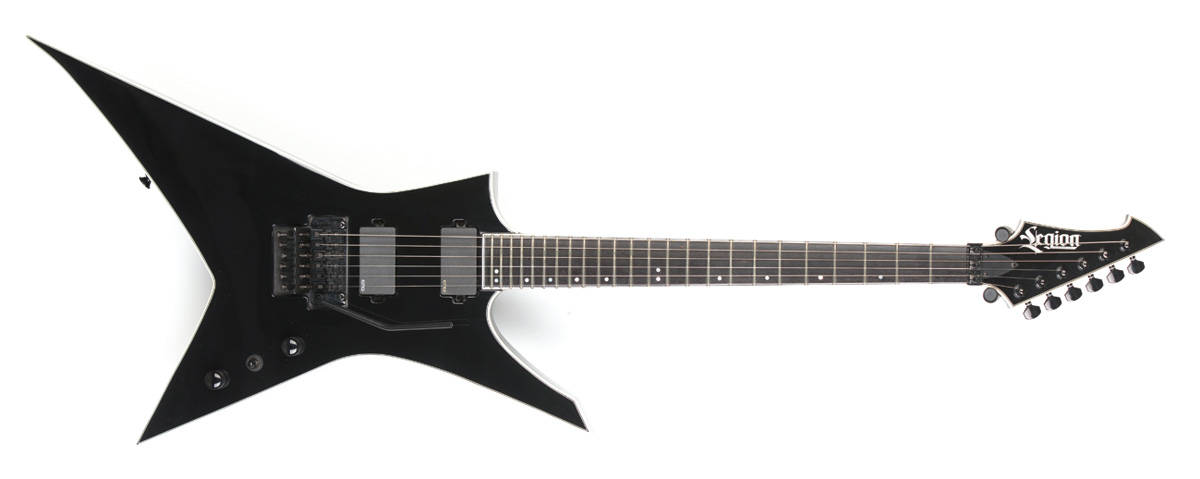
Kiesel Guitars
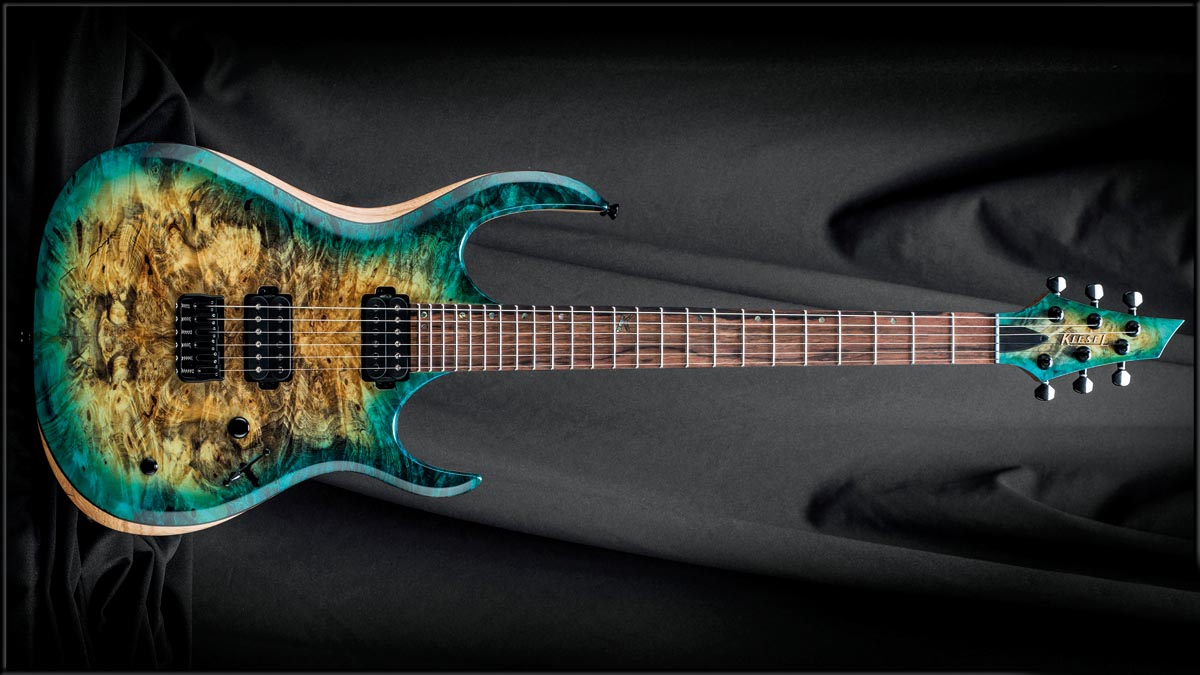
If you really want to get freaky, then the Kiesel Guitars website is the place to go. For more than 70 years the company has been building exotic instruments to spec for extreme shredders like Allan Holdsworth, Jason Becker, Will Swan, Johnny Hiland, Al Joseph, Frank Gambale and thousands of other players.
Their models include carved-top guitars, multiscale fanned-fret models, headless guitars and basses, extended-scale baritone instruments and just about anything else you can think of.
Their guitars ain’t cheap – their baseline price is somewhere around $1,200 – but because Kiesel has their production so streamlined and organized, they aren’t nearly as pricey as many comparable boutique guitar makers.
“I think the thing that makes us special is that all of our instruments are built at our in-house factory in the U.S.A.,” says Zak Kiesel, who oversees the company’s marketing and social media. “We hold ourselves to the higher standard that comes with making quality instruments. We’re always pushing the limits to make our guitars better and more durable.”
While we found their website graphically unappealing (C’mon guys, this thing looks like it was built in freakin’ 1997), it was easy to navigate and endlessly addicting once you start realizing how many options are available to create your own dream guitar.
But if you really want to get a sense of what Kiesel has to offer, we recommend checking out their far superior Instagram page. Unlike their website, it offers hundreds of great videos, photos and testimonials from satisfied customers.
Dunable Guitars
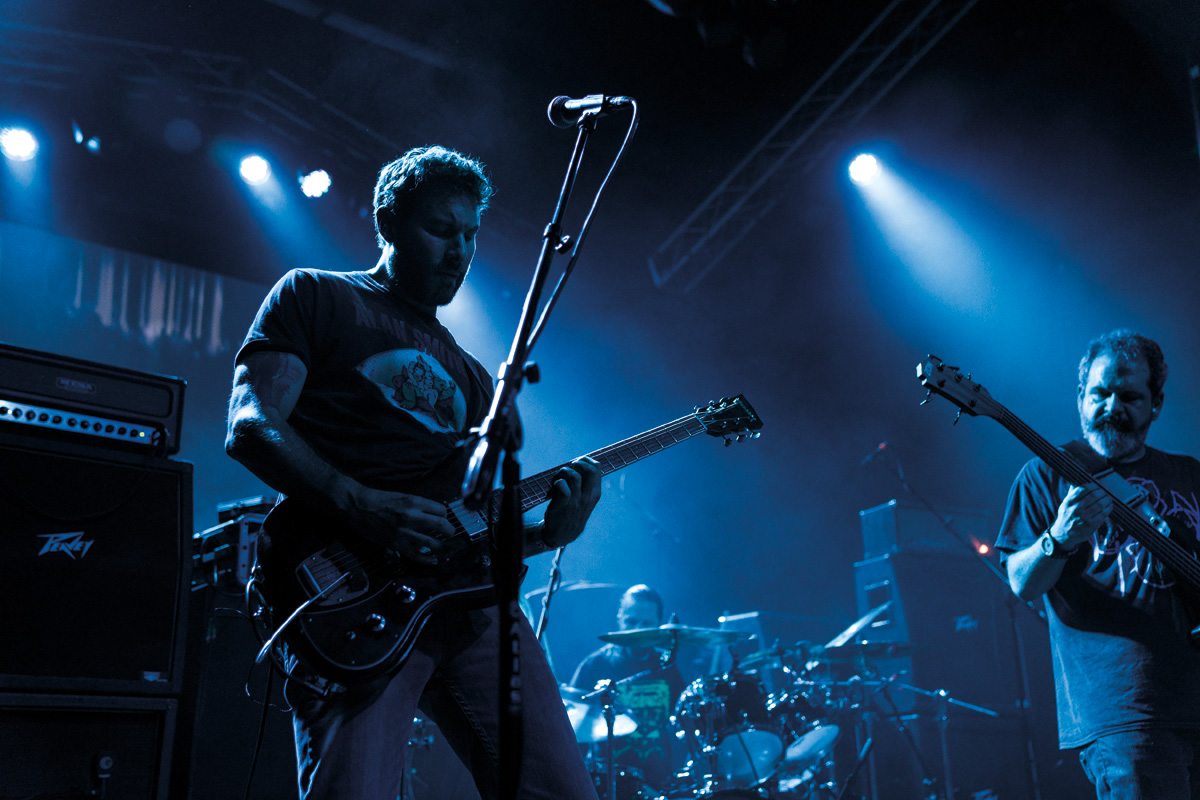
If Legion and Eastwood push all those groovy nostalgia buttons, and Kiesel guitars are on the cutting edge, then Dunable represents the best of what’s here-and-now.
Designed to look classic with just enough “pointiness” to feel heavy metal, one can imagine the company’s guitars being valid now… and 50 years from now.
“I try to make my guitars look organic, but also like something heavy is going to come out of it,” explains owner Sacha Dunable. “For lack of a better description, our aesthetic is pre-Floyd Rose era – before the hair metal guys got involved.”
The key to their classic look are their stunning matte finishes – their Cyclops 2020 Metallic Purple Burst with gold hardware, for example, is almost too awesome to look at. “We like a nice thin finish because you can still feel the wood,” Dunable says. “It’s about appreciating the materials and not covering them up with a thick plastic coating.”
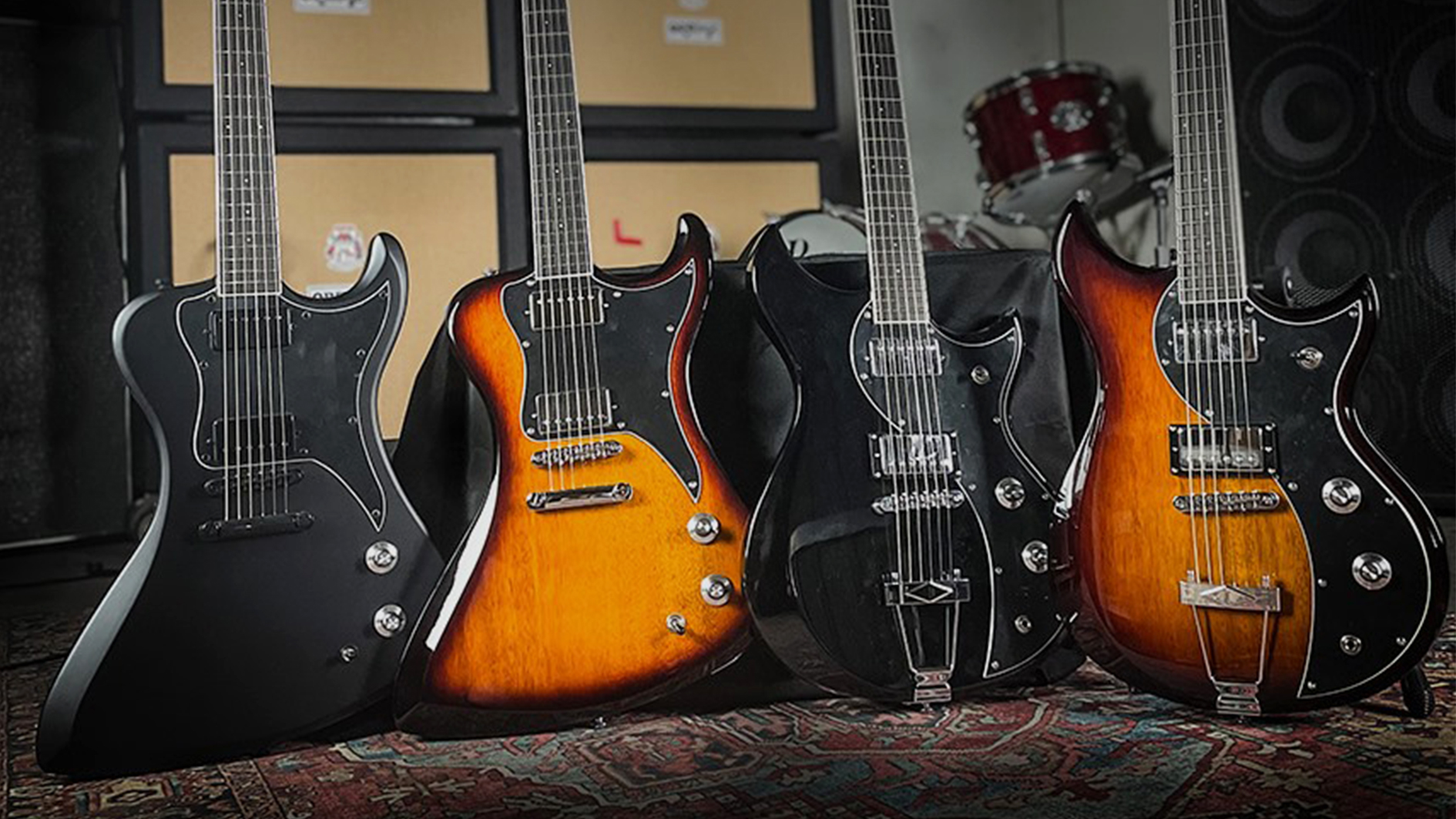
In addition to the Cyclops, the Yeti and R2 models are their most popular. However, we were also attracted to their Cosmonaut, which is a tasteful but entirely original mashup of a Tele and a Rick.
Dunable speaks for all these companies when he explains why more independent makers have been sprouting up like mushrooms at a Grateful Dead show.
“If you put your guitars online, it’s just as easy for someone to find all of us as it is to access the bigger companies,” he says. “It’s leveled the playing field. We’re all on the internet and you can email us directly and order from us directly. There’s going to be a lot more direct-to-consumer things happening than brick-and-mortar stores opening, that’s for sure.”
For more on Dunable, check out our feature from September 2020.
A long time ago in a galaxy far, far away Brad was the editor of Guitar World from 1990 to 2015. Since his departure he has authored Eruption: Conversations with Eddie Van Halen, Light & Shade: Conversations with Jimmy Page and Play it Loud: An Epic History of the Style, Sound & Revolution of the Electric Guitar, which was the inspiration for the Play It Loud exhibition at the Metropolitan Museum of Art in New York City in 2019.
“These measures threaten the economic and cultural impact of U.S.-made musical instruments”: NAMM president responds to Trump's tariffs – urgently urging the administration to exempt the musical instrument market
Stevie Ray Vaughan, Simple Minds, Megadeth, the Cult and the class of 1985 – only in the new Guitar World






![John Mayer and Bob Weir [left] of Dead & Company photographed against a grey background. Mayer wears a blue overshirt and has his signature Silver Sky on his shoulder. Weir wears grey and a bolo tie.](https://cdn.mos.cms.futurecdn.net/C6niSAybzVCHoYcpJ8ZZgE.jpg)

![A black-and-white action shot of Sergeant Thunderhoof perform live: [from left] Mark Sayer, Dan Flitcroft, Jim Camp and Josh Gallop](https://cdn.mos.cms.futurecdn.net/am3UhJbsxAE239XRRZ8zC8.jpg)


